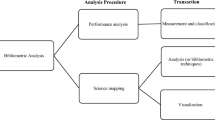Abstract
Ethics are a set of moral principles and values a civilized society follows. Doing science with principles of ethics is the bedrock of scientific activity. The society trusts that the results and the projected outcome of any scientific activity is based on an honest and conscientious attempt by the scientific community. However, during the last few decades, there has been an explosion of knowledge and the advent of digital age. We can access the publications of competitors with just a “click”. The evaluation parameters have evolved a lot and are based on impact factors, h-index and citations. There is a general feeling that the scientific community is under a lot of pressure for fulfilling the criteria for upward growth and even retention of the positions held. The noble profession of scientific research and academics has been marred by the temptation to falsify and fabricate data, plagiarism and other unethical practices. Broadly speaking, the breach of ethics involves: plagiarism, falsification of data, redundant (duplicate) publication, drawing far-fetched conclusions without hard data, for early publicity, gift authorship (receiving as well as giving), not giving sufficient attention and consideration to scholars and post-docs as per the norms, self promotion at the cost of team-members, treating colleagues (overall all juniors) in a feudal way and Machiavellianism (cunningness and duplicity in general conduct and push to positions of power and pelf). Misconduct in Indian academics and science is also under a lot of focus. It is important and urgent that science, engineering, and health departments and institutions in our country have in place systems for education and training in pursuit of science with ethics by sound and professional courses in Responsible Conduct of Research. All research and academic institution must have the Office of Ethics for information, guidelines, training and professional oversight of conduct of research with the ethos and ethics of research.
Similar content being viewed by others
References
Resnik DB (2011) What is ethics in research and why is it important? http://www.niehs.nih.gov/research/resources/bioethics/whatis/
On being a scientist. A guide to responsible conduct in research. Third Edition (2009) graduateschool.nd.edu/assets/21763/on_being_a_scientist.pdf
Steneck NH (2007) Office of research integrity—introduction to responsible conduct of research. Department of Health and Human Services, USA. http://ori.hhs.gov/ori-intro
Sumner JB (1946) The chemical nature of enzymes. Nobel Prize Lecture. http://www.nobelprize.org/nobel_prizes/chemistry/laureates/1946/sumner-lecture.html
Chemistry explained. James Sumner, American Biochemist. http://www.chemistryexplained.com/St-Te/Sumner-James.html
Watson JD (2001) The double helix: a personal account of the discovery of the structure of DNA. Simon and Schuster, New York
Sharma OP (2012) Quality indicators of scientific research. Indian J Microbiol 52:305–306. doi:10.1007/s12088-012-0246-2
Pendlebury DA (2008) White paper—using bibliometrics in evaluating research. wokinfo.com/media/mtrp/UsingBibliometricsinEval_WP.pdf
Publish and perish at Imperial College London: the death of Stefan Grimm (2014) http://www.dcscience.net/2014/12/01/publish-and-perish-at-imperial-college-london-the-death-of-stefan-grimm/
Al-Khalili J (2010) Higgs would not find his boson in today’s ‘publish or perish’ research culture. http://www.theguardian.com/commentisfree/2014/feb/14/higgs-boson-publish-or-perish-science-culture
Zimmer C (2012) A sharp rise in retractions prompts calls for reform. http://www.nytimes.com/2012/04/17/science/rise-in-scientific-journal-retractions-prompts-calls-for-reform.html?pagewanted=all&_r=0
Fang FC, Casadevall A, Morrison RP (2011) Retracted science and the retraction index. Infect Immun 79:3855–3859. doi:10.1128/IAI.05661-11
Walker L (2014) Is pressure to publish causing scientific fraud? http://thebrainbank.scienceblog.com/2014/04/11/is-pressure-to-publish-causing-scientific-fraud/
Counzin-Frankel J (2013) Shaking up science. Science 339:386–389. doi:10.1126/science.339.6118.386
Maher B (2010) Research integrity: Sabotage! Nature 467:516–518. doi:10.1038/467516a
Committee on Publication Ethics. http://publicationethics.org/
Albert T, Wager E (2003) How to handle authorship disputes: a guide for new researchers. COPE report 2003. publicationethics.org/files/2003pdf12.pdf
Alberts B (2010) Promoting scientific standards. Science 327:12. doi:10.1126/science.1185983
Editorial—Mentoring matters (2010) Nature Cell Biol 12:101. doi:10.1038/ncb0210-101
Lee A, Dennis C, Campbell P (2007) Nature’s guide for mentors. Nature 447:791–797. doi:10.1038/447791a
Titus SL, Wells JA, Rhoades LJ (2008) Repairing research integrity. Nature 453:980–982. doi:10.1038/453980a
Kelland K (2012) UK survey finds science misconduct “alive and well”. http://www.reuters.com/article/2012/01/12/us-scientists-research-survey-idUSTRE80B1DN20120112
Woodgett J (2012) We must be open about our mistakes. Nature 489:7. doi:10.1038/489007a
Singapore statement on research integrity (2010) http://www.singaporestatement.org/
Fanelli D (2013) Redefine misconduct as distorted reporting. Nature 494:149. doi:10.1038/494149a
Challenges in irreproducible research (2014) Nature 515:7. doi:10.1038/515007a
Announcement: reducing our irreproducibility (2013) Nature 496:398. doi:10.1038/496398a
Responsible Conduct of Research (RCR) http://www.nsf.gov/bfa/dias/policy/rcr.jsp
Innovation and growth—rationale for innovation strategy. Organization for Economic Co-operation and development (2007) www.oecd.org/science/inno/39374789.pdf
Satyanarayana K (2010) Plagiarism: a scourge afflicting the Indian science. Indian J Med Res 131:373–376
Chaddah P (2014) Pursuing knowledge creation, India needs a policy on ‘plagiarism cells’. Curr Sci 106:349
Abinandanan TA (2011) Scientific misconduct in India: an analysis of retracted papers in PubMed. http://www.imsc.res.in/~ethicsmeet/abstracts/abinandanan.html
Jayaraman K (2008) Chemistry’s ‘colossal’ fraud. http://www.rsc.org/chemistryworld/News/2008/March/25030801.asp
Neelankantan S (2009) In India, plagiarism on the rise. http://www.globalpost.com/dispatch/india/090921/did-you-write-yaar-india-plagiarism-the-rise
India to propose regulatory body to curb misconduct. Nature News in Brief (2008) Nature 452:15
Turnitin. http://turnitin.com/
Office of Research Ethics. https://uwaterloo.ca/research/office-research-ethics
Conflict of interest
None.
Author information
Authors and Affiliations
Corresponding author
Rights and permissions
About this article
Cite this article
Sharma, O.P. Ethics in Science. Indian J Microbiol 55, 341–344 (2015). https://doi.org/10.1007/s12088-015-0532-x
Received:
Accepted:
Published:
Issue Date:
DOI: https://doi.org/10.1007/s12088-015-0532-x




